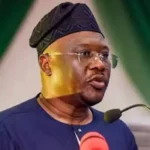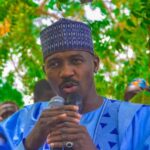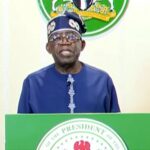Impediments to ease of doing business have led to inefficiencies in service delivery at Nigeria’s seaports. However, in this interview, the Executive Secretary of the Nigerian Shippers Council (NSC), Mr Hassan Bello, said the traffic congestion at the port may begin to ease by March. He spoke more about the strategies being deployed.
What are the milestones in the maritime industry?
We have learnt a lot of lessons. One of which is the digitalisation of the ports; which is necessary now, and which we are pushing. By the first quarter, substantial operations of the ports should be done electronically. In 2020, we were still bedevilled with the traffic situation at the ports; which was embarrassing. The NSC was the champion of bringing all stakeholders together. We also worked with the Nigerian Ports Authority (NPA) to ensure that a modern traffic system is put in place. That is about to happen now. We also want multimodal delivery of cargo operations to happen. We encourage rail to come on stream. We are also seeing barges now. The efficiency of the ports also has a lot to do with the traffic. What we are saying is that instead of that gloomy situation at Apapa, the rail, when done, should clear it up.
We are also looking at the electronic call-up system so that trucks are only there only when they have business to do. We are looking at March, 2021, for the traffic situation to ease at the ports because of the frontal approach we have adopted.
Again, the NSC has been appointed as the lead agency to see to the operationalisation of the Port Manual System. This would mean efficiency. We have to monitor and enforce the standard operating procedure of all stakeholders at the ports. This is to engender transparency and efficiency. This will also improve ease of doing business. Also, by the second quarter, we should see the result.
We have to thank the terminal operators and shipping companies who are daily trying to digitalise. Some companies are almost 90 per cent digitalised. We have seen others who have already digitalised. The Nigeria Customs Service (NCS), the banks, the freight forwarders and others will also have to be on the same page. All of them must integrate their systems. If this is achieved, the dwell time of cargo will reduce from 28 days to the regional level of seven.
Do you really see the rail service impacting the cargo situation at the Apapa port?
Yes; that is why we have the dry port at Ibadan. Negotiation is almost concluded and we hope, either by this quarter, we should lay the foundation for the dry port. The Minister of Transportation has given all parties a deadline to conclude the negotiation, and after that, we will approach the Federal Executive Council (FEC) for approval. When the facility is ready, most of the cargo in Lagos will go to Ibadan. This will mean a lot.
There have been delays on the Truck Transit Park (TTP), why is this so?
It is a private sector-driven initiative. We are only promoting it. Like several other things, the pandemic slowed down the pace of development. We had clients from the UK who wanted to invest in one of the parks, but because of COVID-19, the client could not come. We are making an effort for the investor to still come.
TTPs are now called Vehicle Transit Area (VTAs). Also, the FCT is about to give NSC 108 hectares along the Abuja-Lokoja Road to invite the private sector to invest and provide infrastructure for trucks and vehicles around Abuja. We will renew our energy and drive private sector participation this year.
The Kano-Maradi rail line project was recently flagged off, how will it affect shipping?
That is a very important rail route because of international trade. It is a good facility and it comes in good time. Nigeria must expand its trading frontier. We have to complement our economy with a trading economy. If we have that, Maradi will be an outlet. You will see impact on the small and medium scale industries around the Kano economy. There will be a domino effect. Kano has more than 1,000 industries. They produce paint, fabricate engines, etc. There are also the agro-allied industries.
The Kano-Maradi axis is also an outlet for African Continental Free Trade Area (AfCFTA). We need to have linkages in the whole of West Africa and beyond. The success of this agreement for Nigeria rests on cross-border or trans-border facilities or infrastructure like the Kano-Maradi rail line.
Besides, the NSC is promoting the Kano dry port or Dala Dry Port. This is the port where all the processes will take place. We are happy with the Kano State Government spending about N 2 billion in infrastructure and we will soon commission the facility.
Will it be connected to the Kano-Maradi line?
It will be connected. A meeting has taken place with the Kano concessionaire and the Nigerian Railway Corporation (NRC) so that we can align the facility with the Kano-Maradi line.
Coming back to AfCFTA, its implementation commenced on January 1, 2021, have you noticed any impact?
Nigeria has been trading within Africa for as long as anyone can remember. This is to further crystalise that. Of course, the agreement will take time for the impact to be felt, but it was a good thing Nigeria signed the agreement.
There are other dry ports, what is happening to them?
Kano and Jos are all undergoing recapitalisation. For Jos, we are about to have a new investor. The concessionaire is about to pull out. We will substitute it. For Kano, the state government has reinvigorated the project. For Ibadan, we are supposed to conclude and sign relevant agreements. So things are looking up this year.
You were on the committee for a maritime national carrier, is there a head way?
There are three prospects on the national carrier, but they are still at infancy. We are still at the stage of removing all the obstacles that will help the private sector invest in it. It is the duty of the government to create an enabling environment to make it attractive. The prospect is that we have the Sealink project which is about to start with five ships. Then, there are two or three private sector operators who have approached us, but we are still looking at it. We want a sustainable national carrier.

 Join Daily Trust WhatsApp Community For Quick Access To News and Happenings Around You.
Join Daily Trust WhatsApp Community For Quick Access To News and Happenings Around You.


